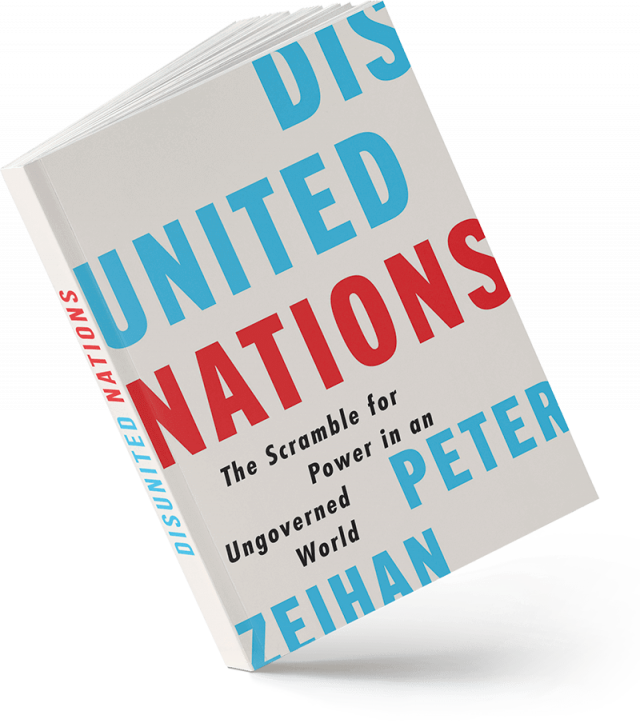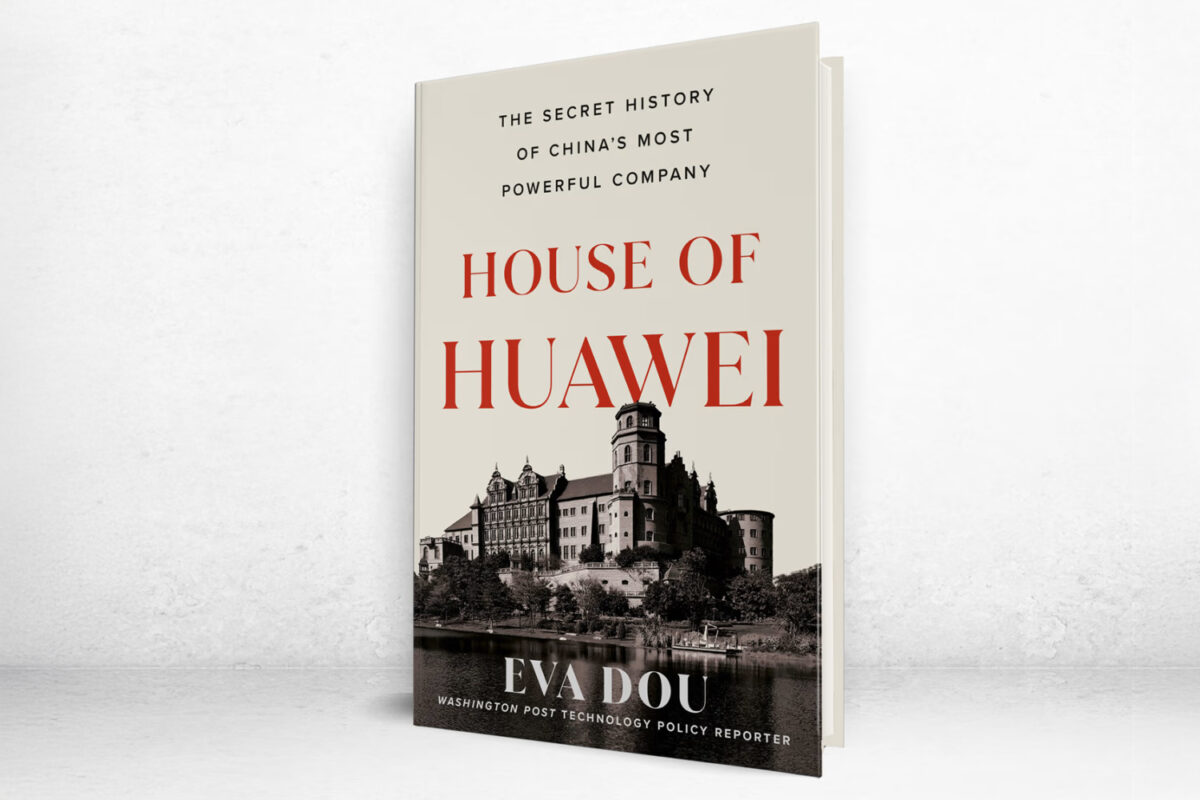By Malik Abu Luqman
BOOK REVIEW: Disunited Nations: The Scramble for Power in an Ungoverned World
Peter Zeihan
August 2020

Disunited Nations is Peter Zeihan’s, third book on geopolitics (for our review of his latest, The End of the World is Just the Beginning, see here). He predicts that a massive upheaval in the global order is underway as America no longer cares to maintain the post-World War II order. He cites the ending of the Cold War, America’s energy independence (due to the shale boom), and a pro-isolationist electorate (both on the right and the left) as the key reasons for this shift.
In the post American world, he analyses how specific countries, including China, Japan, Russia, Germany, France, Iran, Saudi Arabia, Turkey, Brazil and Argentina will fare. Zeihan also outlines the “misshape” of the US foreign policy to come.
As with his other books, readers get a short course in demographics and geography. The Russian Army, he predicts, will be half its size by 2022 (compared to 2016) due to low-birth rates plus high death rates (which he attributes to heroin addiction, alcoholism, drug-resistant tuberculosis and HIV). On the geography front, the northern countries benefit from disease-pest killing winter. Tropical Brazil is not as fortunate, with “Brazilian bugs and weeds tend[ing] to develop chemical resistance two to three times faster than those in more temperate climates”[1].
With that in mind, readers will also find the book interesting for two reasons: understanding China’s challenges and Turkey’s strategic prospects.
On China, he looks at whether the country has the capability to displace the US from its hegemonic role or emulate British Imperialism. He concludes that they don’t. Internally, there are divisions (China has only been united by Han rule for 300 years of its multi-millennial history). China has used credit to prop-up its production of goods: GDP has gone up 4.5 times, but credit “expanded by a factor of 24. Total debt in China has ballooned to more than triple the size of the entire economy”)[2] and it is a net importer of food (e.g., the country imports more flax/soy than the rest of the world combined). Militarily, its lone operational flagship aircraft carrier, Liaoning, “has perhaps one-seventh the combat capacity” of just one of the US’s supercarriers (the US has ten of these warships in total).[3] Zeihan notes that even Japan’s four aircraft carrier groups out class its 70 surface combat vessels.[4] Furthermore, it has fraught relations with its neighbours (e.g., they have been fighting the Vietnamese for 2000 years).
In terms of Turkey, Zeihan sees a nation with a lot of potential. Specifically, the country is able to command the Turkish Straits and other strategic bodies of waters (e.g., Sea of Marmara, Black Sea, etc.). For example, he sees Turkey doing a better job than Russia when it comes to cultivating trade with Ukraine via the Dnieper/Dniester rivers. He points out these “Ukrainian rivers were robust commercial arteries” during Ottoman times. He does acknowledge that Turkey imports a lot of energy. However, he contends that they would not have much trouble accessing – or annexing – its needs from neighbouring oil fields in Iraqi Kurdistan and Azerbaijan. Interestingly, he sees countries rebuffed by NATO – specifically Romania and Bulgaria – returning to Turkey’s orbit, who once ruled these territories as Ottomans. He also sees it logical for Turkey to take over Syria. More broadly, he sees Turkey a large benefactor in a receding Russia – who would be able to extend influence on its former territories currently held by Russia.
Zeihan also sees a promising future for Uzbekistan and a more open relationship between the US and Iran. He estimates that the maximum number of American casualties that can be assigned to Iran is 800. He illustrates how small this number actually is by comparing it to the 34,000 American that died at the hands of the Chinese/North Koreans in the Korean war and 47,000 who were killed by the Vietnamese.[5]
The book, however, falls short on two fronts.
The first is appreciating how the US uses neo-colonialism to hide its imperialism and the second is the role of ideology in hegemonic power. He believes the US forced the European colonial powers to respect the sovereignty of “independent” nations. In reality, these nations are loyal to the US. President Trump, for example, reminded us that the Saudi King wouldn’t last “two weeks” without US support.[6] On the second issue, he gets close when analysing Turkey. He recognises that the Ottomans were the last official representatives of Islam. However, he does not go the full way to see the power of how an idea can unite a disunited people in the disordered world he foresees.
Despite these weaknesses, Zeihan’s thesis is helpful in imagining a world without American interference. It helps to appreciate how raw geopolitical factors – land, sea, populations and so on – can enable nations, like Turkey, to take their political destinies into their own hands.
[1] Zeihan, Peter. Disunited Nations (p. 308). HarperCollins. Kindle Edition.
[2] Zeihan, Peter. Disunited Nations (p. 40). HarperCollins. Kindle Edition.
[3] Zeihan, Peter. Disunited Nations (p. 35). HarperCollins. Kindle Edition.
[4] Zeihan, Peter. Disunited Nations (p. 127). HarperCollins. Kindle Edition.
[5] Zeihan, Peter. Disunited Nations (p. 419). HarperCollins. Kindle Edition.
[6] Saudi King wouldn’t last ‘two weeks’ without US, Trump says – CNNPolitics





One comment
Hassan
9th September 2022 at 6:49 pm
While the demography and geography part is enjoyable to read, Zeihan makes lots of assumptions beginning with US being not an empire/imperial state. He is pro-American scholar and thats the reason why i dont read western scholars alot. They are short-sighted and cant look beyond themselves. Kindly recommend some unbiased books